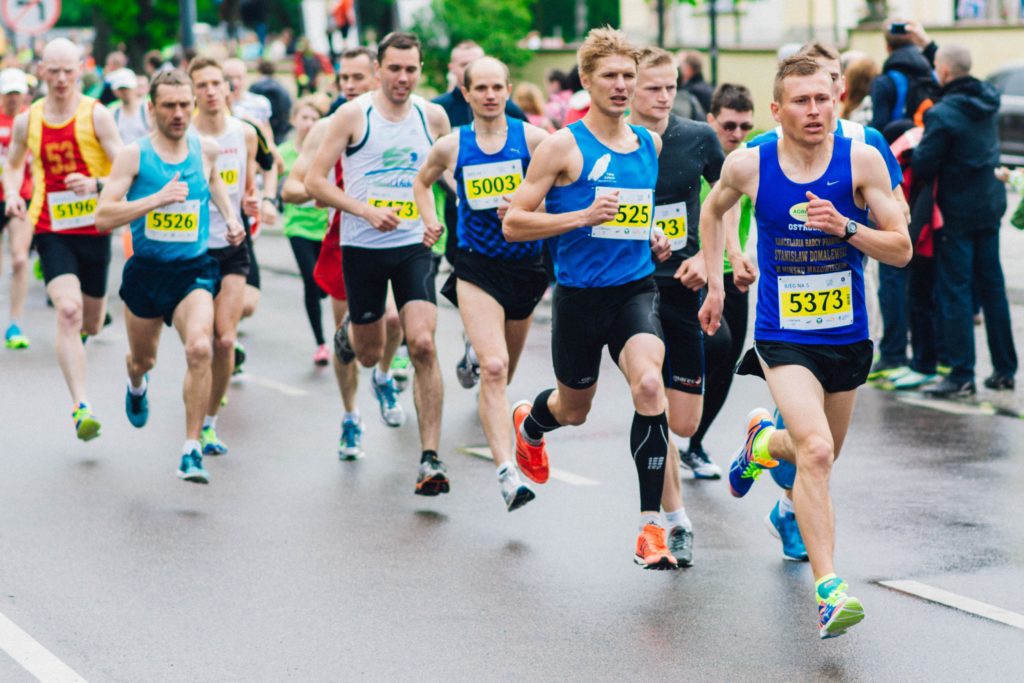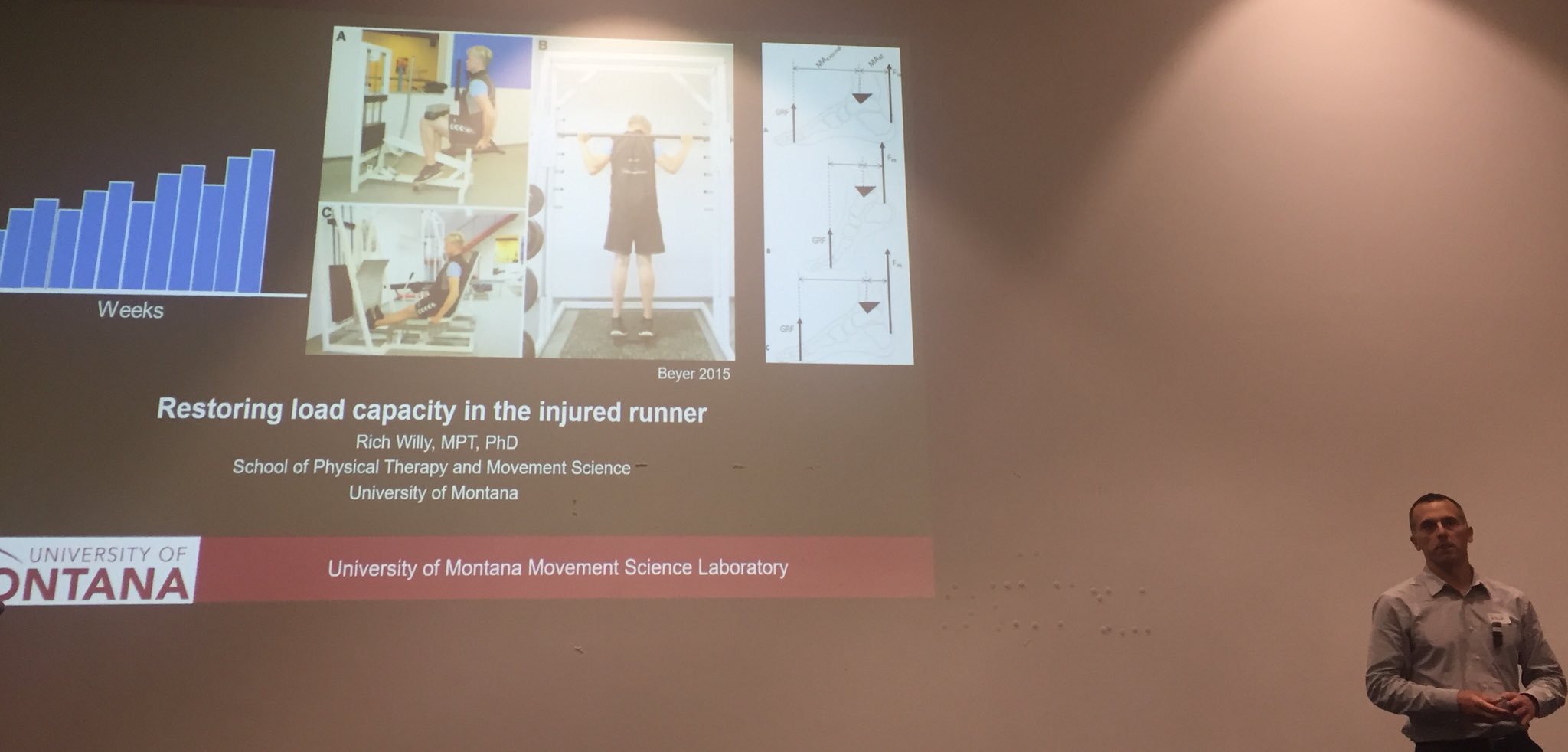There are several reasons why people are turning to running for exercise. It has proven physical and mental health benefits. People who run frequently can live up to 3 years longer than people who do not exercise!
More people partaking in jogging, running training and marathons than ever before and this is described as a ‘running boom’ by experts. With this, there is also an increase in older runner participation.
 Dr Richard Willy from the University of Montana presented at La Trobe’s recent Running Science Symposium. He discussed the key assessment and management principles of the injured runner. He highlighted that due to the increase of runners, clinicians are treating an ever-growing number of injured runners. In fact, each year 50% of runners will experience some disruption in their regular training due to injury.
Dr Richard Willy from the University of Montana presented at La Trobe’s recent Running Science Symposium. He discussed the key assessment and management principles of the injured runner. He highlighted that due to the increase of runners, clinicians are treating an ever-growing number of injured runners. In fact, each year 50% of runners will experience some disruption in their regular training due to injury.
Most running related injuries occur at the knee, but are also common at the ankle, foot, and lower leg. These areas of the body are injured often because there is a large amount of forces placed on these body parts, even with proper training.
After a break from running, many athletes who begin training again, train at a higher intensity or volume than they should for their level of fitness. He believes that this can sometimes happen because the athlete doesn’t want to disappoint others, they have high expectations of themselves or a perfectionist attitude.
 “When you look at perfectionism in athletes it seems to increase the risk of shin splints, for example, by up to 10 times then individuals who do not exhibit those personality traits. I think it’s a major issue and I think we probably don’t have a good handle on it,” he said.
“When you look at perfectionism in athletes it seems to increase the risk of shin splints, for example, by up to 10 times then individuals who do not exhibit those personality traits. I think it’s a major issue and I think we probably don’t have a good handle on it,” he said.
Along with this, stress, depression, anxiety and feelings of hopelessness are common among people who are unable to participate in an activity that is their passion or a major part of their life. Running and exercising can be a large part of one’s social networking and without it, a person can feel a loss of self-identification or wellbeing.
“Treatment plans need to consider the psychosocial factors,” Dr Willy said.
Dr Willy explained that when developing a treatment plan for patients recovering from injury, it is vital to educate them about managing their training loads.
“In the next 10 years, where things are going to change the most I would say the psychosocial aspects of running injuries and I’ll also say too that it would be management of training loads,” Dr Willy explained.
He suggested that mobile phone applications, such as Strava, and GPS-equipped running watches can be a good way for athletes to measure and gradually build up their running volumes, along with following a prescribed rehabilitation plan if necessary. Slowly improving an individual’s physical strength through strength training can be very beneficial in the long run.
Have a listen to The Physical Performance Show podcast below as Dr Willy discusses running mechanics, injuries and research!


